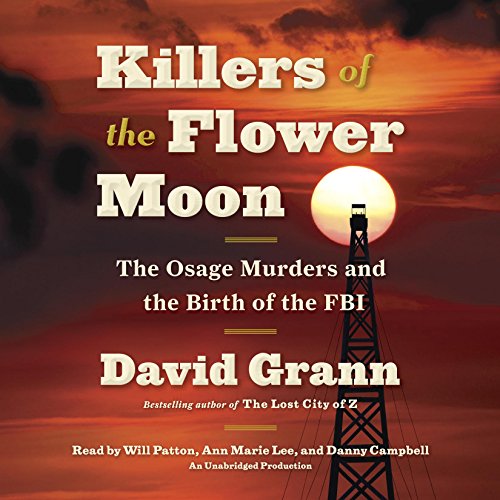 |
| Killers of the Flower Moon, by David Grann |
In the 1920s, the Osage Indians of Oklahoma were the richest people per capita due to the discovery of oil on their land. The federal government decided that the Osage were not "fit" to make monetary decisions on their own, and they were appointed legal guardians who did anything but guard the safety of their legal charges. Over a period of several years, many rich Osage were murdered (or died suspiciously) in what appears to be a conspiracy among legal guardians to gain control of the wealth. Outlining malicious greed and terror, Killers of the Flower Moon begins by following a specific set of murders that the FBI "solved." Grann then continues the book by describing his own research into other mysterious deaths that happened around the same time.








